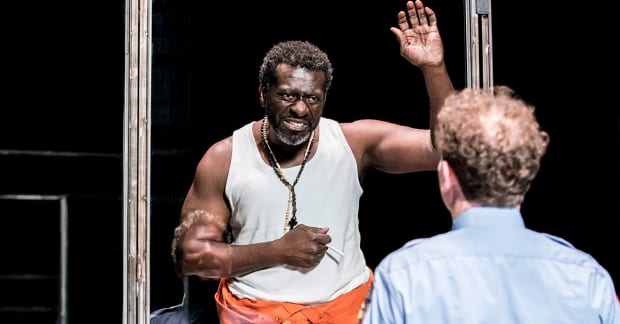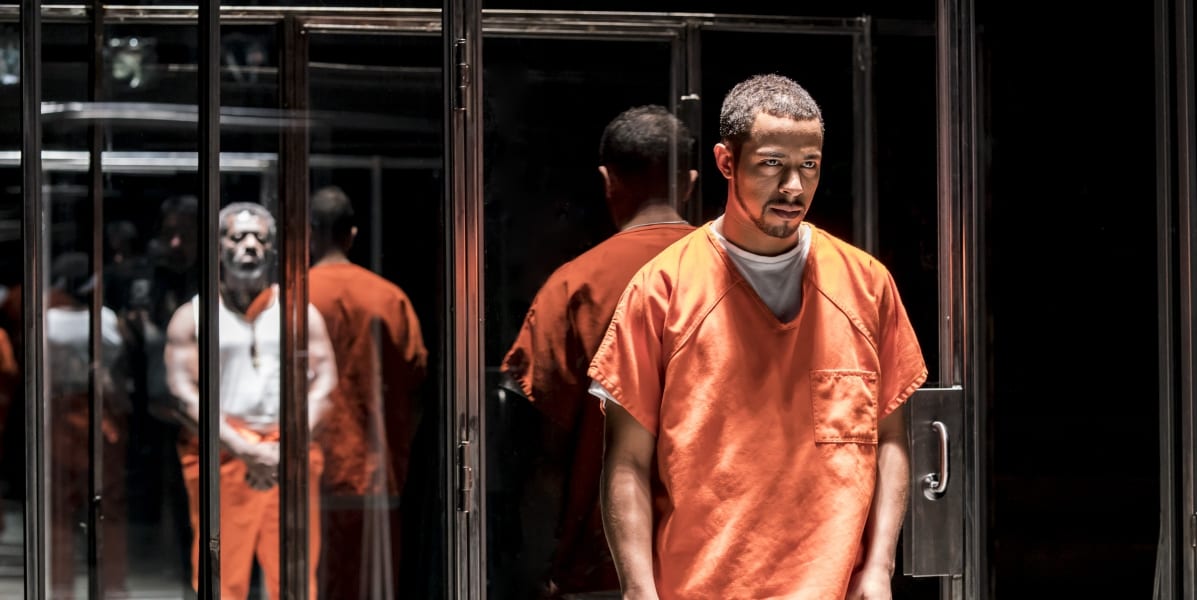Stephen Adly Guirgis’ Jesus Hopped The ‘A’ Train is an explosive, verbose play set in the maximum security wing of the infamous Rikers’ Island prison in New York. There we meet young Angel Cruz (Ukweli Roach), imprisoned for attempted murder after shooting the leader of a religious cult in the bum for ensnaring his friend. On the other side of the hall is Lucius Jenkins (Oberon K.A. Adjepong), a notorious serial killer who has turned to God. As Angel’s attorney, Mary Jane (Dervla Kirwan) fights for his freedom and sadistic prison guard Valdez attempts to hold onto his own notions of good and evil, the two imprisoned men grapple with issues of fate, forgiveness, and faith.

Under Kate Hewitt’s direction, Jesus Hopped The ‘A’ Train propels each moment forward into an engaging 165 minutes. With a minimalistic traverse set, designed by Magda Willi, the focus is on Guirgis’ engrossing dialogue and the connection between the actors. Separated by two plexiglass walls, Adjepong and Roach bring ample energy to their characters and the moments between the two are potent in the range of anger to tenderness. Adjepong, in particular, practically radiates energy. Constantly active and alert, even in moments of stillness, his portrayal of Lucius is complicated and stirring.
Willi’s traverse set design is complemented by the jarring sonic and visual transitions between scenes in which quixotic drums and loud strains of jazz are paired with bright shocks of light, forcing the audience a little further into the discomfort of the American justice system. The clever transitions mirror the violence inflicted upon Angel within Rikers, the shock of the charismatic Lucius’ descriptions of his own murders, and finally, the ‘A’ train itself.
Perhaps the most stirring monologue of the play comes from Roach, who stops his attorney’s questioning to tell her a childhood story of hopping the ‘A’ train. Almost in a trance, Roach is propelled onto his chair, remembering the lights of the subway nearing dangerously and the presence of God in his young body. There are several of these monologue moments throughout the show, which allows the rest of the cast, such as the talented Kirwan, to reach into memory, guiding the audience along with them. These moments of poetry in the show, which feel natural within the brave and terrifying world that Hewitt and the cast pull us into.

